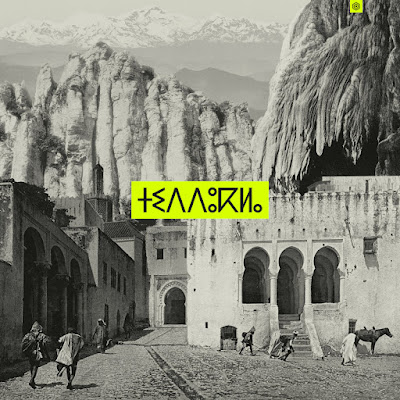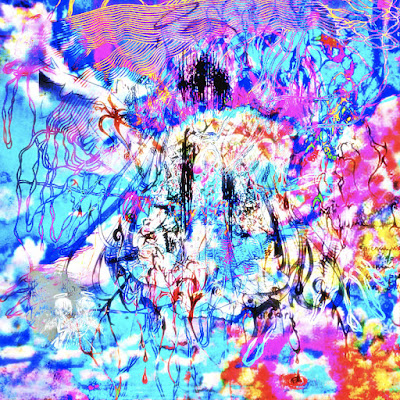I don't hear enough from bands out of Mexico City. I can't imagine why. It's a big place, with a lot of creative people in it. I'm not going to speculate as to why, but what I will say, is that what I do hear, I tend to like. What reaches my ears tends to fall into three distinct categories: ska (a genre I like, but only when performed by Latin American and Caribbean musicians), black metal (a genre I REALLY like, especially when it's sung in Spanish), and shoegaze (a genre I raley am given a reason to celebrate).
Mexico City's Howless is different than all of the above... they are a shoegaze band, who I like- as much as an Argentinian Ska band, or a black metal band who I can imagine playing in cowboy boots. So, yeah, they are a band I like a lot. Their latest release To Repel Ghosts has been traipsing the crooked corridors of my brain for a while, and it's been getting a free pass on rent for a variety of reasons. All of which stem from the same conclusion- they just get the vibe right.
What works for me about shoegaze, at the times when it does work, is its arresting enigmatic and overwhelming nature. When I'm feeling it, it's a genre that feels suspended between extremes of mood and perception in a permeable haze of concrete, sonic antagonism.
Imagine you're engulfed in a blizzard, but instead of snow caught in the winds that are thrashing your clothes and pulling at your hair, its a siege of rose petals, each as soft as you can imagine but with a little razored edge- ever so slight as to cut you with each passing swipe, but never deep enough to draw blood, coating you in acute but indistinguishable lacerations- it's pleasant, but exahustingly painful, and all the while you stagger through this cloud of stinging caresses, you are beckoned forward by some sweet perfume, salivating like a coyote- dripping with desire, although never for release.
That's always how I feel shoegaze should sound, and that's where To Repel Ghosts frankly hits the mark. I can't say exactly what I'm feeling while listening to it because it is changing by the second, and sometimes even less than that. And that's what keeps me coming back- trying to retrace my steps and find what I had felt before, only to discover something new, satisfactory and disorderly in it's place.
I love the Italian disco parts that stir and mingle with dark fixations on opener "Fade Out," the bright power-pop and sensuous bluster of "Rain and Ice" feels tense while still in repose, the pouty and pinning "Unlucky" is infectiously optimistic in its embrace of its underdog casting, "To Repel Ghost" feels like a big romantic seance where you summon the shade of a dead boyfriend to pair dance with abandon to a The Psychedelic Furs instrumental, and "Levels" simply expresses what it feels like to be caught between the layers of a dream as it collapses in on itself in a dustless, controlled demolition at the moment you reacquire consciousness.
To Repel Ghosts is the kind of haunting you want in your house- a state of mind and sound that opens a path to indulge in moods that previously lay like old toys in attic drawers. Seemy things that you might never pick up again for for fear of what lingering things they may awaken inside of you. Memories you might not recognize as your own. Sentiments that feel stolen, but which would be wrong to give back.
It's out on Static Blooms Records.


















